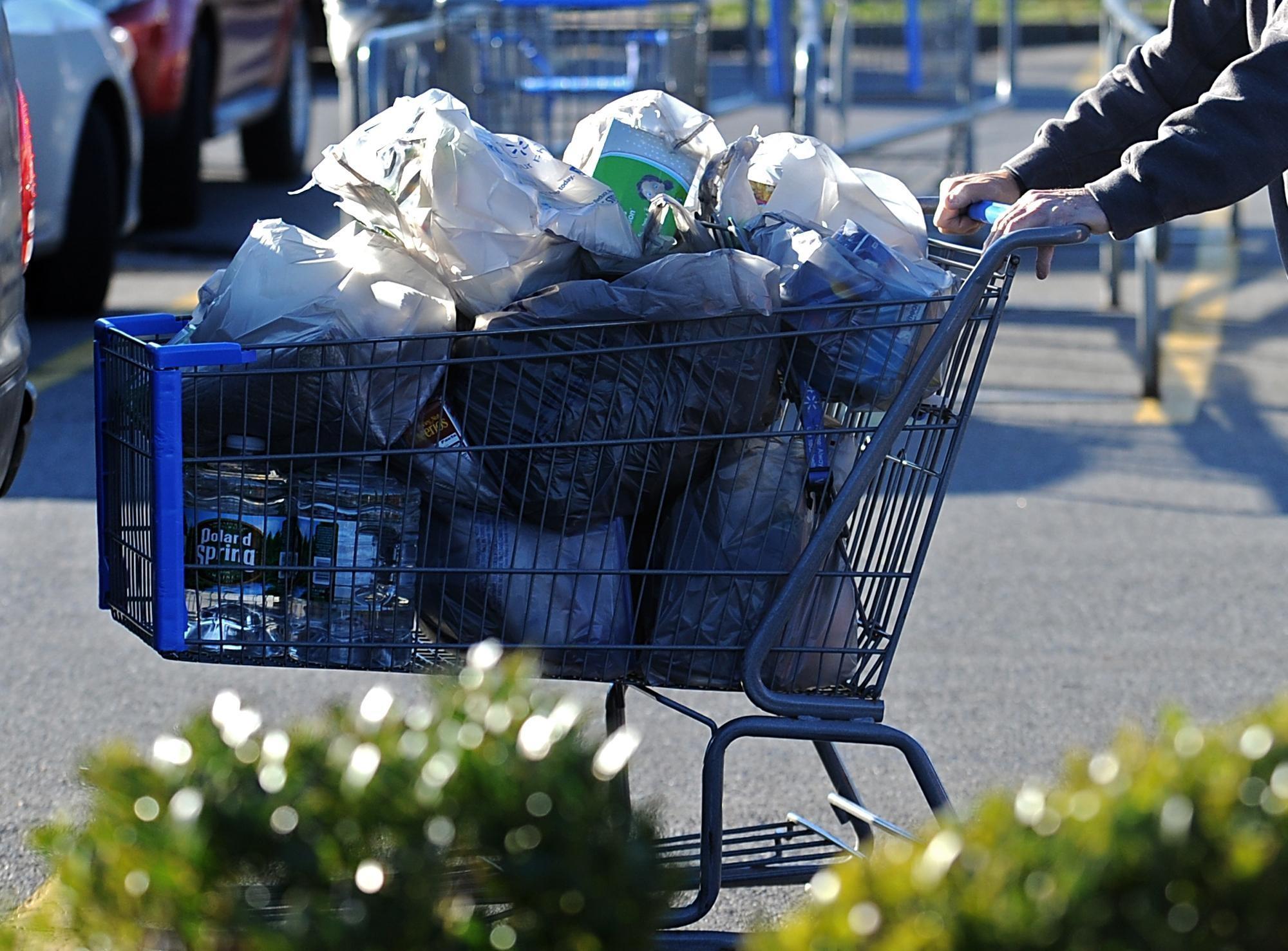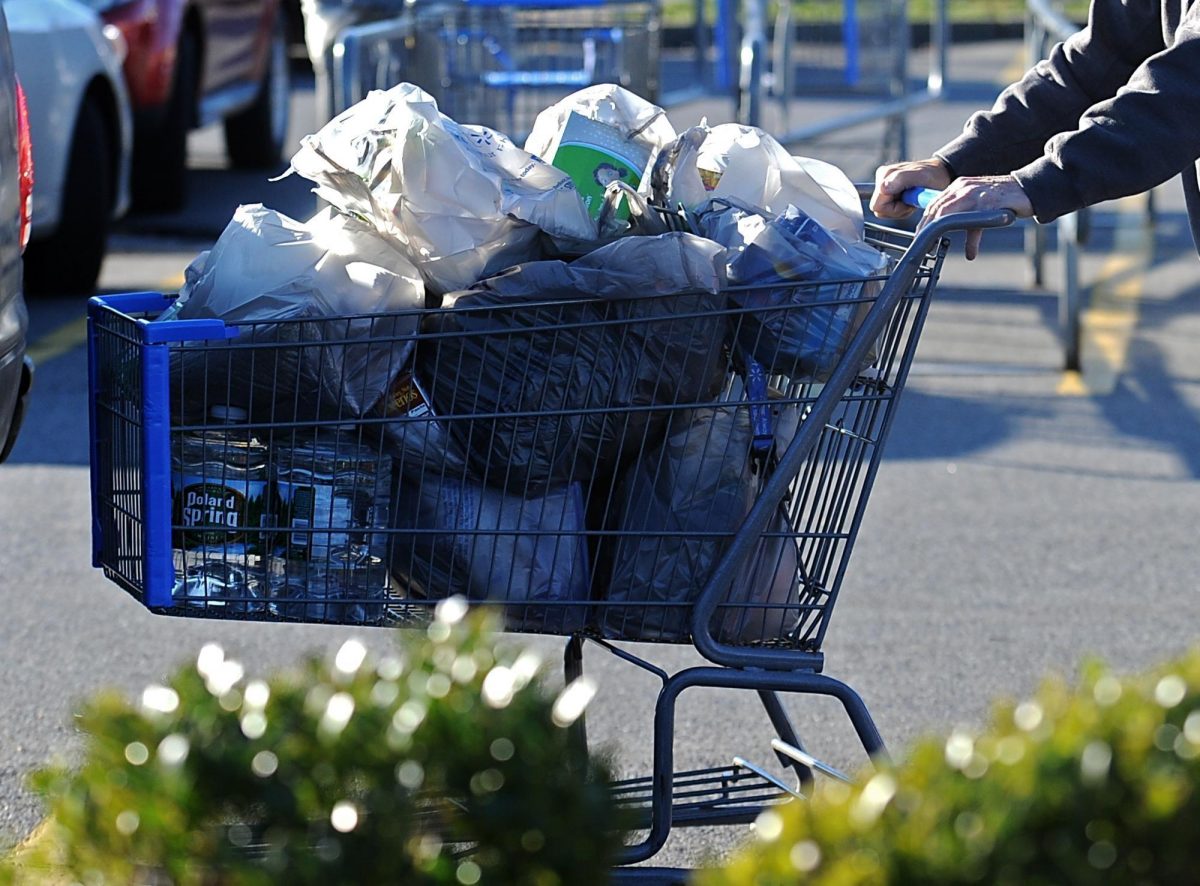
A city task force will study the effectiveness of a ban on single-use plastic bags that was imposed on Jan. 1, and determine whether an education campaign, fees or both are needed to further cut down on plastic bag use.
FRAMINGHAM — With the city’s ban on plastic bags now 1 year old, a task force will study potential changes to make it more effective, including imposing new fees.
The City Council recently voted to establish an ad-hoc group to consider how successful the initiative has been since it took effect in January. The nine-member panel will report back to the council with recommendations to improve the ban, which could include measures to better educate the public or new fees on paper bags, which are still permitted at the point of sale.
The move was spurred by a request from District 8 Councilor Judy Grove, who was involved in the initial push to pass the bag ban two years ago. Grove, who leads the council’s Environment and Sustainability Subcommittee, said she supports adding a small fee, which could improve compliance among stores that currently hand out alternatives to plastic.
She cited the example of Cambridge, where retailers must charge a minimum of 10 cents per bag for any reusable, paper, or compostable bag with handles provided at the point of sale.
“The point everybody I’ve ever spoken to who is involved in this issue makes is you will not get the compliance if you don’t charge them something,” Grove said last month. “It doesn’t even matter if it’s 5 cents. People have an attitude that they don’t want to pay for it. They’ll bring their bags.”
Framingham’s bag ban took effect Jan. 1, 2018. It prohibits a wide range of stores from distributing or selling single-use plastic bags with handles.
Town Meeting ushered in the change two years ago, passing a Plastic Bag Reduction Bylaw aimed at helping the environment and reducing the number of bags that wind up as trash.
Framingham is among almost 90 Massachusetts cities and towns that have plastic bag restrictions, according to Mass Green Network, an organization that connects people in different communities working on bag and other regulations. Locally, the list includes Natick, Sudbury, Wayland, Wellesley, Ashland, Hopkinton and Westborough.
In Framingham, the ban applies to all retail establishments that provide a checkout bag to customers, including grocery stores, convenience stores, pharmacies, liquor stores and household goods stores.
Customers can still use plastic bags to carry loose produce to the checkout counter. Stores are also allowed to provide thin film plastic bags for dry cleaning, newspapers, produce, meat, bulk foods, wet items and other similar merchandise.
The bylaw does not affect restaurants.
The new task force studying the issue will include a pair of city councilors — Grove and District 4 Councilor Michael Cannon, who leads the Economic Development Subcommittee — and a range of others representing segments of the community that would be affected, such as a business owner and environmental advocate. The chairperson will be named by Mayor Yvonne Spicer. Rounding out the group will be the city’s new sustainability coordinator, Shawn Luz, and representatives from the Health Department, Public Works and Inspectional Services.
Any recommendations from the group must be endorsed by the City Council.
While those suggestions are still forthcoming, members of the council expressed some initial unease during preliminary discussions last month with imposing new fees.
District 2 City Councilor Pam Richardson said in Cambridge, store clerks often seem uncomfortable charging customers for bags. Without more effort to educate the public in Framingham, Richardson said she fears shoppers will take out their frustration on workers behind the cash register.
“I just don’t feel at this time that this community, Framingham, has been educated enough or become aware enough to recognize why this policy would be enacted,” she said, “and I fear that we’re just ahead of our constituents.”
District 4 Councilor Michael Cannon also expressed unease with the proposal, saying the community already has a reputation for not being business-friendly. Cannon said it should fall to lawmakers on Beacon Hill to come up with a statewide approach to regulating plastic bags.
After studying the issue, however, Grove said other communities found it was easy to implement new fees. In Cambridge, for instance, Grove said she heard there was indeed unhappiness when the bag ban went into effect, but people got used to it. The city also provided stickers for stores to place on their cash registers that explain the bag fees are imposed by the city, taking pressure off of clerks, she said.
“The bottom line here is I don’t think it’s going to be a major effort,” she said.
Jim Haddadin can be reached at 617-863-7144 or jhaddadin@wickedlocal.com. Follow him on Twitter: @JimHaddadin

